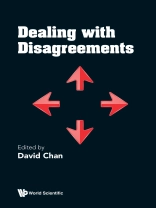Most people can recall encounters, episodes and experiences involving disagreements over an issue. The more important the issue, the more it affects interpersonal relationships negatively when there is strong disagreement. Disagreements often generate negative thoughts, feelings and actions that significantly influence attitudes, decisions and behaviours. These dynamics in dealing with disagreement is part of our human psychology. If the underlying psychology is understood, this knowledge can facilitate personal and workplace relationships. It can also help address disagreements between policymakers and citizens or advocacy groups.
Several questions have become more salient in recent years, particularly amid COVID-19 challenges, as Singapore society underwent significant changes that impact on the nature and level of attention given to the way we deal with disagreements. What factors should we pay more attention to when dealing with disagreements? What are the policy and societal contexts, and can we deal with disagreements in an ethical way? How are disagreements affected by people’s social networks and social identities? What lessons can we learn from how we have dealt with disagreements? How do we approach disagreements better to effect positive changes?
This book explores these and other issues about dealing with disagreements. The book is organised into four parts. Part 1 provides an overview of the issues involved in dealing with disagreements. Part 2 discusses issues of ethics and values in managing difficult situations. Part 3 analyses the relationships linking disagreements, social networks, diversity, and social identities. Part 4 addresses specific questions on dealing with disagreements in Singapore in terms of education, youths and inter-generational differences, the role and practice of the media, civil society advocacy and engagement, facts and signals in parliamentary debates and public discourse, dealing with feedback and viewpoints, political and public service leadership, and relationships between people and government.
This book will provide new perspectives and possibilities on what it means to say ‘dealing with disagreements’, as we resolve problems and generate solutions to live a better life and build a stronger Singapore society.
Contents:
- About the Editor
- About the Contributors
- Preface
- Overview
- Dealing with Disagreements: How Singapore Can Do Better (Tommy Koh)
- Approaches to Disagreements (David Chan)
- Panel Discussion 1 (Panelists: Tommy Koh, David Chan, Moderator: Han Fook Kwang)
- Ethics and Values:
- Dealing with Disagreements Ethically (Lim Soo Ping)
- Disagreements in Managing COVID-19 Situations: Case of Migrant Workers (Jeremy Lim)
- Panel Discussion 2 (Panelists: Lim Soo Ping, Jeremy Lim, Moderator: Tan Sor Hoon)
- Networks, Diversity, Identities:
- More of the Same: The Relational Basis of Attitudes (Vincent Chua)
- Disagreement, Diversity and Social Identities (Cheng Chi-Ying)
- Panel Discussion 3 (Panelists: Vincent Chua, Cheng Chi-Ying, Moderator: Mathew Mathews)
- The Singapore Context:
- Closing Panel Discussion: Dealing with Disagreements in Singapore (Panelists: Tan Tai Yong, Zakir Hussain, Kanwaljit Soin, Walter Theseira, Moderator: David Chan)
Readership: General readers; Leaders and employees in public, private and people sectors; Academia and research communities in the social sciences and humanities.
Key Features:
- This is the first comprehensive volume that examines the various social and behavioural issues concerning how people deal with disagreements in Singapore. These issues have continuously received wide public and policy attention both in and outside Singapore
- The speakers and panelists are leaders in their respective areas of expertise and they approach the topic by providing an informative review, presenting a state-of-the-art analysis, identifying critical unresolved issues and proposing innovative solutions to the problems identified
- The speakers and panelists are very well-known locally and internationally, including academics, practitioners and public intellectuals. The wealth and diversity of experience, reputation and influence of this set of authors will provide a very wide reach and multiplier effect in the readership market.
- The book, based on the presentations and panel discussions in the BSI Conference 2021 held on 1 December 2021, is written in an active style which will make it highly engaging for the reader












